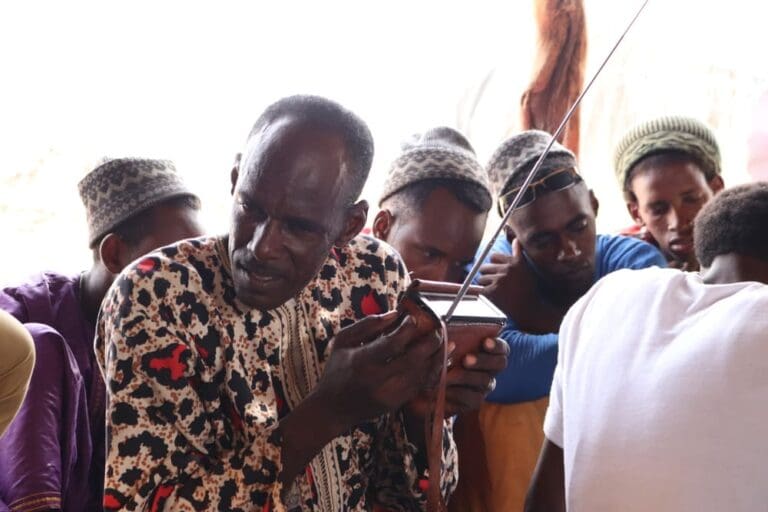In the face of growing climate challenges, listening clubs supported by community radios are proving to be essential spaces for exchanging and learning, providing agropastoralists with crucial agro-climatic information while reducing gender inequalities.
In rural areas of Senegal, where the impacts of climate change threaten food security, listening clubs have become vital tools for addressing climate variability. Connected to community radios, these clubs help spread information on climate-smart agriculture and livestock management.
The groups, consisting of 10 to 12 members, regularly meet to review radio broadcasts on various topics, including climate forecasts, natural resource management, sustainable farming practices, and vaccination techniques.
Beyond their informational role, these clubs serve as key drivers of resilience and empowerment, particularly for women. According to a report by AICCRA, around 40% of club participants are women. For them, these gatherings are not only opportunities to learn but also spaces where they can express their concerns and find tailored solutions.
Fatoumata, a member of a club in Ferlo (Northwest) explains: “These broadcasts help us better understand agricultural practices and finally make us feel heard in discussions on climate and livestock.”
Bridging science and practice
With the support of experts from institutions such as the Senegalese Agricultural Research Institute (ISRA), the National Civil Aviation and Meteorology Agency (ANACIM), and the International Livestock Research Institute (ILRI), listening clubs provide clear and relevant information. According to gathered data, the relevance of topics is rated 9.5/10 by members.
This quality of information enhances the ability of agropastoralists to anticipate climate risks and optimise their practices. As Adama Ba, a livestock farmer from Kaffrine (Central Senegal), explains: “The specialists’ advice helped us anticipate climate changes and better protect our herds.”
In a context where access to digital technologies is limited, especially for rural women, these clubs, supported by simple tools, emerge as effective alternatives.
“Thanks to the listening clubs, I discovered solutions to improve my agricultural production, despite droughts,” Mariama, a farmer from Linguère (Northwest) says.
Beyond discussions, listening clubs are influencing actual agricultural and pastoral practices. Feedback from listeners helps adjust broadcasts to better meet the real needs of the communities. For example, a suggestion to adapt broadcasting times to include evening listeners has been made.
ARD/te/lb/as/APA


